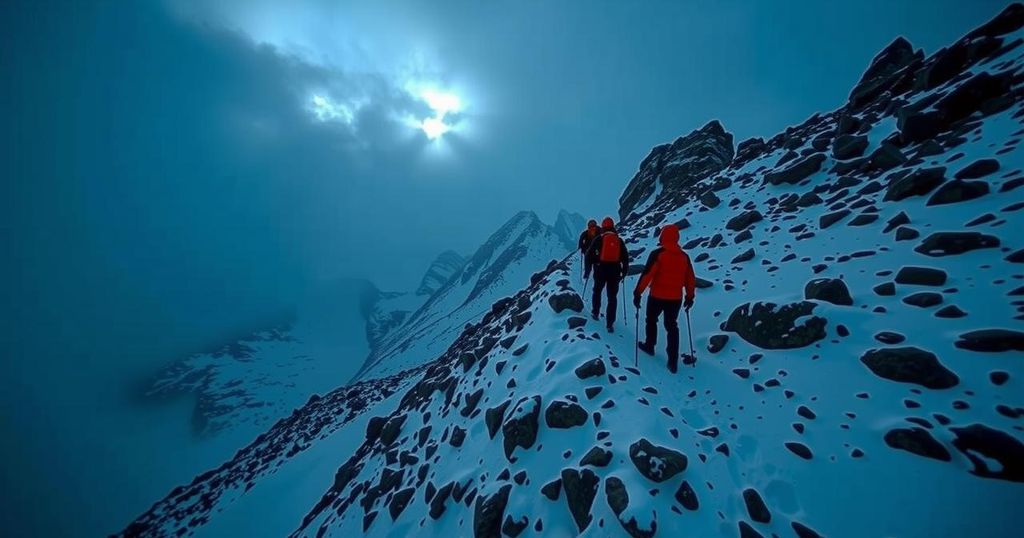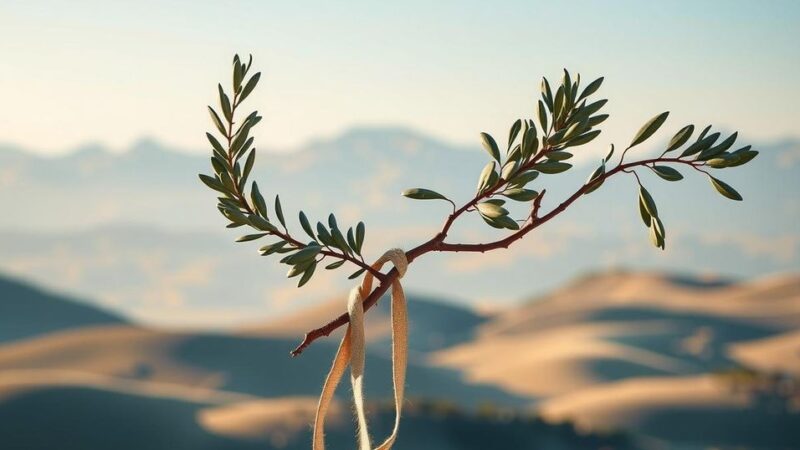Three climbers from the U.S. and Canada are missing after an ascent of Aoraki, New Zealand’s highest peak. Search operations have been disrupted by severe weather for three days. The climbers were reported missing after failing to meet their transport, despite several climbing items being found. Their continued absence raises concerns for their safety amid the mountain’s notorious climbing hazards.
Authorities in New Zealand are increasingly alarmed for three climbers from the United States and Canada who have gone missing following a planned ascent of Aoraki, the nation’s highest peak. Efforts to locate them have been hindered by adverse weather conditions, which have stalled search operations for a third consecutive day. Strong winds have prevented aerial searches from resuming as initially scheduled on Thursday, according to Police Area Commander Inspector Vicki Walker.
The climbers include Kurt Blair, 56, from Colorado, and Carlos Romero, 50, from California, both experienced alpine guides affiliated with the nonprofit American Mountain Guides Association. The identity of the third climber, a Canadian national, remains undisclosed at the request of his family. The trio was last seen during their flight to a hut located partway up Aoraki on Saturday; they were reported missing by authorities after failing to arrive for their scheduled transport on Monday. Search teams have since discovered various climbing equipment believed to be associated with the climbers, yet no further evidence pointing to their whereabouts has emerged.
Due to severely deteriorating weather conditions characterized by heavy rain and snow, the search efforts, which previously had experienced a temporary halt on Tuesday and Wednesday, were deemed unsafe to continue on Thursday. Aoraki stands at 3,724 meters (12,218 feet) and is part of the Southern Alps, a range renowned for its picturesque yet perilous terrain. The mountain attracts proficient climbers; however, it poses significant challenges such as crevasses, avalanche risks, unpredictable weather, and glacier movements. Since the early 1900s, over 240 fatalities have been recorded in this treacherous location and its adjacent national park.
Aoraki, also referred to as Mount Cook, is New Zealand’s tallest mountain and is located within Aoraki/Mount Cook National Park. It is a sought-after destination for experienced climbers due to its stunning vistas and technical challenges presented by its glacier formations and variable weather patterns. Escalating concerns regarding the safety of climbers have been prominent as this peak has a documented history of climbing accidents, contributing to a total of more than 240 recorded fatalities in over a century of documented climbing attempts. The recent disappearance of climbers underlines the inherent risks associated with alpine mountaineering in the area, reiterating the importance of safety precautions when undertaking such adventures.
The ongoing search efforts for the missing climbers on Aoraki face significant challenges due to severe weather conditions, leading to heightened concerns among authorities about their well-being. The experienced backgrounds of Kurt Blair and Carlos Romero, as certified alpine guides, underscore the seriousness of the situation. Ultimately, the incident serves as a stark reminder of the risks associated with climbing in mountainous terrains, particularly in regions notorious for their unpredictable weather and hazardous conditions.
Original Source: apnews.com







